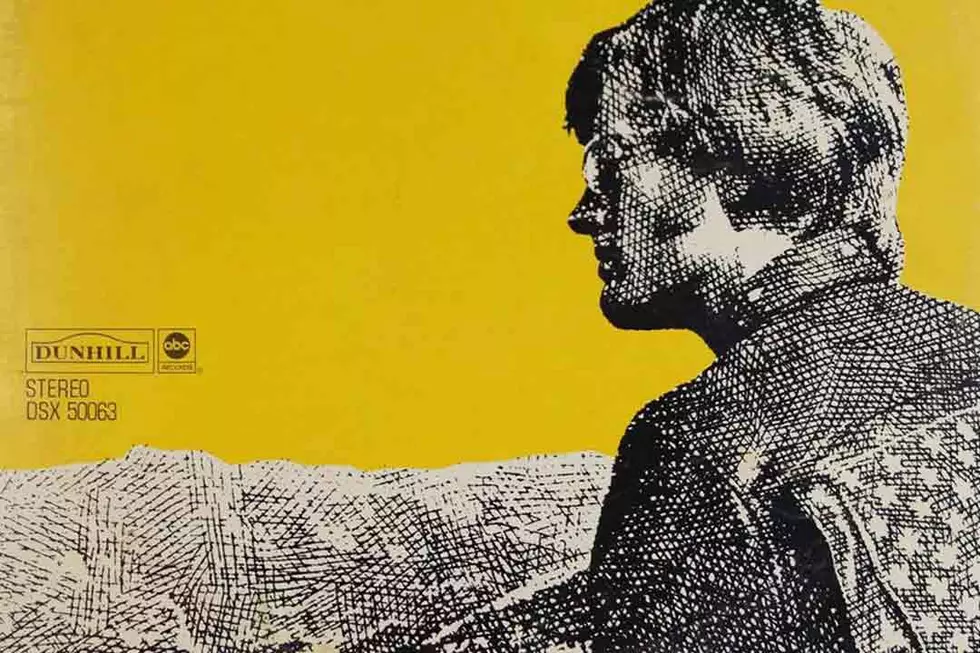
How the Groundbreaking ‘Easy Rider’ Changed Soundtracks Forever
For classic movie moments, it’s hard to beat Peter Fonda and Dennis Hopper as they roar down the highway on chopped Harleys at the start of Easy Rider.
The scene is propelled by Steppenwolf’s hard-rock anthem "Born to Be Wild." The explosive pairing of image and sound pulls the audience into a wild road trip across the south and southwest. The release of Easy Rider on July 14, 1969, marked a revolution in Hollywood filmmaking. Easy Rider was directed by Hopper and produced by Fonda, two of the era’s rebellious young filmmakers who chose to work outside the studio system.
The film follows Wyatt, aka "Captain America," (played by Fonda) and his friend Billy (Hopper), who just made a major drug sale. With the money hidden in the gas tank of Wyatt’s bike, the pair travel from Los Angeles to New Orleans to celebrate Mardi Gras, then head to Florida to retire. Along the way they meet hippies, rednecks and George Hanson (played by Jack Nicholson), a hard-drinking lawyer who joins them.
One of the groundbreaking aspects of Easy Rider is its music. Hollywood soundtracks until then were usually an instrumental background score or a collection of songs written specifically for a film. And the previous year's The Graduate included a handful of Simon & Garfunkel songs to spotlight the protagonist's alienation.
Easy Rider instead used contemporary rock songs – many already hits – as its soundtrack, a technique pioneered in 1955’s Blackboard Jungle. That film helped make Bill Haley and His Comets’ "Rock Around the Clock" a monster hit.
The Easy Rider soundtrack was a powerhouse collection of songs that included "The Pusher" by Steppenwolf, the acid rocker "If 6 Was 9" by the Jimi Hendrix Experience and the Band’s enigmatic "The Weight," which was included in the movie but covered by the group Smith on the album due to contractual issues.
Audiences were introduced to quirky tunes like "If You Want to Be a Bird" by the Holy Modal Rounders and Fraternity of Man’s "Don’t Bogart Me." The Electric Prunes contributed "Kyrie Eleison," a psychedelic take on religious music.
The Byrds’ "Wasn’t Born to Follow" was also included, and their leader Roger McGuinn performed Bob Dylan’s "It’s Alright Ma (I’m Only Bleeding)" as well as the only song written for the movie, "The Ballad of Easy Rider."
Listen to Steppenwolf Perform 'Born to Be Wild'
Fonda, at first, wanted Crosby, Stills & Nash to write an original score for Easy Rider. But during production, film editor Donn Cambern synched the footage with rock music from his record collection.
“Originally, he was just making it more interesting, but the music became inseparable from the pictures,” Laszlo Kovacs, the film’s cinematographer, told MovieMaker magazine. “When the film was cut there was a discussion about who was going to score it. They ended up licensing the music that Donn was using. They spent $1 million licensing music, which was about three times the budget for shooting the rest of the film.”
As shooting progressed, relations between Fonda and Hopper deteriorated. When they returned to L.A., it was inevitable that Fonda’s choice of Crosby, Stills & Nash to score the film was doomed.
“I sabotaged that,” the late Hopper recalled in Easy Riders, Raging Bulls. “They picked me up in a limo at Columbia, and drove me over, played the music, I told Steve Stills, ‘Look, you guys are really good musicians, but honestly, anybody who rides in a limo can’t comprehend my movie, so I’m gonna have to say no to this, and if you guys try to get in the studio again, I may have to cause you some bodily harm.'"
Hopper prevailed but the artists still had to give their permission for the songs to be used in the film.
“All of those songs had been hits in their own genres and had been released,” Fonda recalled in the Daily Camera. “When we got it all together and realized that was the soundtrack, we had to show it to all the different bands. Of course, they all gave us their permission. We gave everybody $1,000 for their cut. It was so cool showing it to Bob Dylan. I think he was the last one.”
Hopper told Sabotage Times that he “thought it would be so cool if the movie ended with Dylan’s ‘It’s Alright Ma.’ The problem was Dylan didn’t like Easy Rider or the song so much. He thought the track was pretentious, and he had a real problem with the end of my movie: ‘You can’t end it like that! Peter should go back and blow those guys away.’”
Dylan would only allow "It’s Alright Ma" to be used if McGuinn performed it. Dylan told Hopper he had one other condition, an idea that would become the film’s theme: “He said I could use it as long as I didn’t play it over the end credits: ‘Man, it’s depressing enough as it is.’
"Then he did something amazing," Hopper added. "He got out a pen and paper and started to write: ‘The river flows / It flows to the sea / Wherever that river flows / That’s where I want to be. Flow river, flow.’ He then handed it over to me and said, ‘Give this to McGuinn; he’ll know what to do with it.’ So Roger McGuinn from the Byrds added his magic to it and there it was: ‘The Ballad of Easy Rider.’”
The Easy Rider soundtrack LP rose to No. 6 on the Billboard 200 in 1969. The movie's innovative use of music has inspired filmmakers to use rock hits on the soundtracks of classics that include American Graffiti, Apocalypse Now and Mean Streets.
Top 100 '60s Rock Albums
Jimi Hendrix is Part of Rock’s Tragic ‘27 Club’
More From Ultimate Classic Rock









